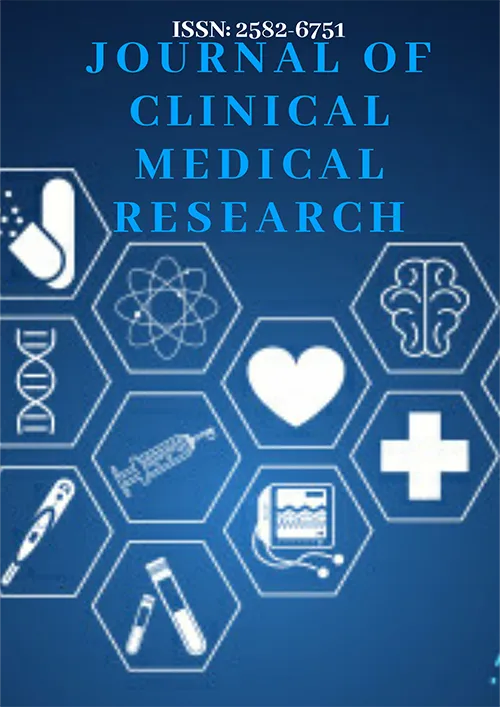Digital archiving and preservation policies
In today’s digital age, the Journal of Clinical Medical Research (JCMR) recognizes the paramount importance of robust digital archiving and preservation policies. These policies are meticulously crafted to ensure the longevity, accessibility, and integrity of the scholarly content published in our journal, thereby upholding our commitment to preserving scientific knowledge for present and future generations.
- Digital archiving infrastructure
1.1. Server redundancy
JCMR employs a sophisticated server redundancy system to mitigate the risk of data loss stemming from hardware failures or unforeseen events. Our content is securely hosted on reliable servers equipped with redundant storage solutions, significantly reducing the likelihood of service disruptions.
1.2. Data backups
To safeguard against potential data loss, regular automated backups of all published content are performed. These backups are stored in geographically diverse locations to enhance resilience, ensuring that the entire repository can be fully restored in the event of a catastrophic failure.
- Open Access and Accessibility
2.1. Open access philosophy
As staunch proponents of open access, JCMR is dedicated to making scientific research freely accessible to a global audience. Embracing an open access model facilitates the widespread dissemination of knowledge, thereby enhancing the accessibility of scholarly content.
2.2. Accessibility standards
JCMR adheres to internationally recognized accessibility standards to ensure that our digital content is accessible to individuals with disabilities. We are committed to providing a user-friendly experience for all readers, fostering inclusivity and diversity in the dissemination of scientific knowledge.
- Metadata and interoperability
3.1. Metadata standards
To optimize discoverability and interoperability, JCMR adheres to established metadata standards such as Dublin Core. This adherence ensures that our content is readily indexed by search engines, repositories, and other scholarly databases, thereby enhancing the global visibility of published research.
3.2. Crossref doi assignment
Each published article in JCMR is assigned a Digital Object Identifier (DOI) through Crossref. DOIs serve as persistent and unique identifiers, facilitating accurate citation, linking, and long-term retrieval of scholarly content.
- Licensing and copyright policies
4.1. Creative commons licensing
In line with our commitment to open dissemination, JCMR adopts Creative Commons licensing for published content. While authors retain copyright, users are granted the right to share, adapt, and build upon the published work with proper attribution.
4.2. Author rights
Authors publishing with JCMR retain the rights to their intellectual property. Our licensing agreements are carefully crafted to strike a balance between widespread dissemination and the protection of authors’ rights, thereby fostering a collaborative and author-friendly publishing environment.
- Collaboration with archiving services
5.1. SHERPA/RoMEO
JCMR is actively pursuing inclusion in SHERPA/RoMEO, a comprehensive database that provides information on the copyright and self-archiving policies of academic journals. This initiative underscores our commitment to transparency regarding authors’ rights and archiving permissions.
5.2. LOCKSS, CLOCKSS, and Portico
JCMR is exploring collaborations with prominent archiving services such as LOCKSS, CLOCKSS, and Portico. These initiatives are aimed at ensuring the perpetual access and preservation of scholarly content, even in the face of potential journal or publisher disruptions.
- Persistent identifiers and linking
6.1. Cross-linking
To enhance the discoverability and accessibility of our content, JCMR actively participates in cross-linking initiatives with reputable scholarly databases, repositories, and indexing services. This interconnectedness contributes to the broader dissemination of research findings.
6.2. ORCID integration
JCMR encourages authors to utilize Open Researcher and Contributor ID (ORCID) identifiers, facilitating seamless integration with institutional repositories and ensuring the accurate attribution of scholarly contributions.
- Periodic audits and assessment
7.1. Digital preservation audits
JCMR conducts regular audits of its digital preservation practices to evaluate the effectiveness of archiving strategies. These audits encompass assessments of data integrity, file formats, and adherence to preservation best practices.
7.2. Continuous improvement
Committed to continuous improvement, JCMR solicits feedback from the scholarly community and keeps abreast of advancements in digital preservation technologies and emerging best practices. This ongoing evaluation informs our efforts to enhance the reliability and sustainability of our digital repository.
The digital archiving and preservation policies of JCMR underscore our unwavering dedication to ensuring the longevity, accessibility, and integrity of scholarly content. Through open access initiatives, adherence to metadata standards, collaboration with archiving services, and ongoing evaluation of our practices, JCMR strives to contribute to the global preservation of scientific knowledge. As we forge partnerships with entities like SHERPA/RoMEO, Portico, LOCKSS, and CLOCKSS, we reinforce our commitment to transparent archiving practices, laying a solid foundation for the enduring impact of published research in the field of clinical medical research.

